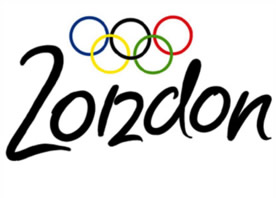
‘The goal for the Russian team is to break the 3:50 barrier in the London Olympics.’
The words of Heiko Salzwedel — over the last few years it’s looked as if the 2012 Olympic team pursuit final would be a straight shoot out between GB and Australia.
But when German, Salzwedel decided to leave his Manchester office at British Cycling and take a plane to Moscow, those ‘in the know’ realised that another horse would be coming under starter’s orders.
And with the decision to chop the Individual Pursuit, Points Race and Madison from the Olympic cycling programme, the Team Pursuit becomes more than ever the ‘Blue Ribbon’ event on the boards.
As well as the GB Federation, Salzwedel has worked with the German, Australian and Danish teams — all with fine team pursuit records over the last decade.
In fact, the word was that GB recruited the German from the Danish squad because the men in red and white were creeping far too close for comfort to the GB team.
Salzwedel took time to talk to VeloVeritas: from his parents’ house in Berlin about what some would argue is the most beautiful event in cycling.
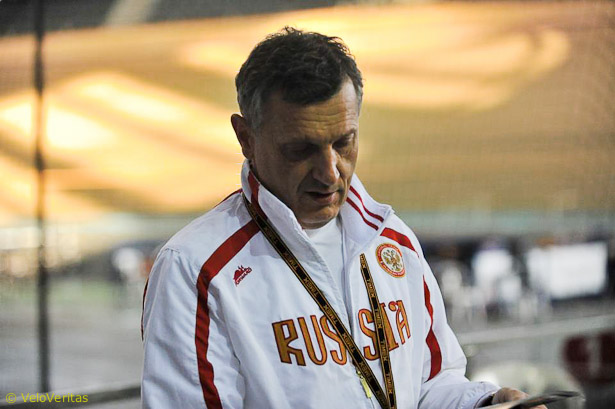
Thank you for speaking to us, Heiko — your squad did 3:56 to win the Astana World Cup, that’s a great ride.
“It’s confirmation that we’re on target; they rode 3:56 in the Russian championships in August so Astana proved that it wasn’t an accident!”
Going sub four minutes must cross a huge psychological bridge for the riders?
“When you do my job you get a good feel for what time a team is capable of in competition and I had it in my mind that they could achieve 3:56.
“Before the Russian champs I said, ‘we can do 3:56’ but the guys said; ‘no, no we can’t do that!’
“They were freaked out by the notion, so I said; ‘OK, we’ll schedule 3:59’ so as not to pressurise them — we did a 59 in qualifying, 58 in the semis and 56 in the final.
“We’re working towards 3:50 — that’s the magic number.”
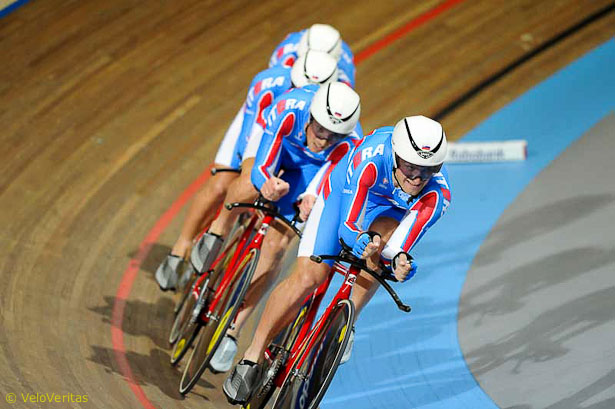
And you started the year with a win in the Beijing World Cup.
“We don’t ride in many World Cups with the top guys but when we do, we ride to win.
“When we’ve ridden with our best team, the lowest we’ve finished in a World Cup is second.”
The rides in Manchester World Cup (10th) and Cali (15th) are to ‘blood’ young riders, then?
“Those teams were more or less our 2016 group, we were trying out new techniques and I wasn’t too concerned about the results.
“They had certain goals to achieve; a good start and a good first two kilometres — they achieved that but exploded at three kilometres, but that didn’t really matter.”
Worlds silver — were you happy with that?
“Yes, maybe we dreamed we could win but we were happy to come away with silver — to reach the main final and qualify second in front of GB (third) was a good result for us.
“We were very happy with silver.”
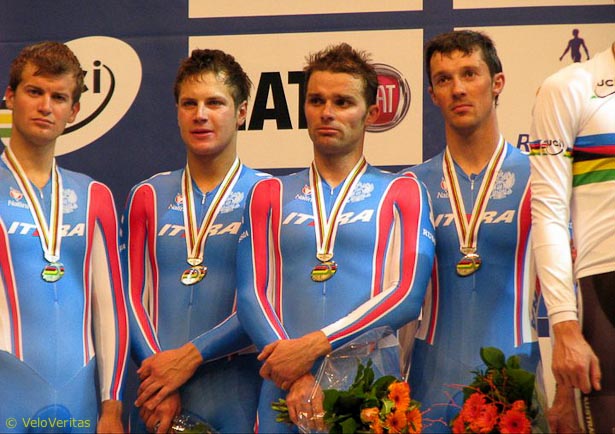
And you won the European U23 gold.
“That was a regional team from Saint Petersburg — it just goes to show the great depth there is in Russian cycling.
“I wasn’t directly involved in that performance, they were trained by one of my coaches — Nikolai Kuznetsov who was in the 1996 Russian squad which took Olympic team pursuit silver in Atlanta.”
‘Only’ silver in the World Junior Championship in Moscow — a disappointment on the home track?
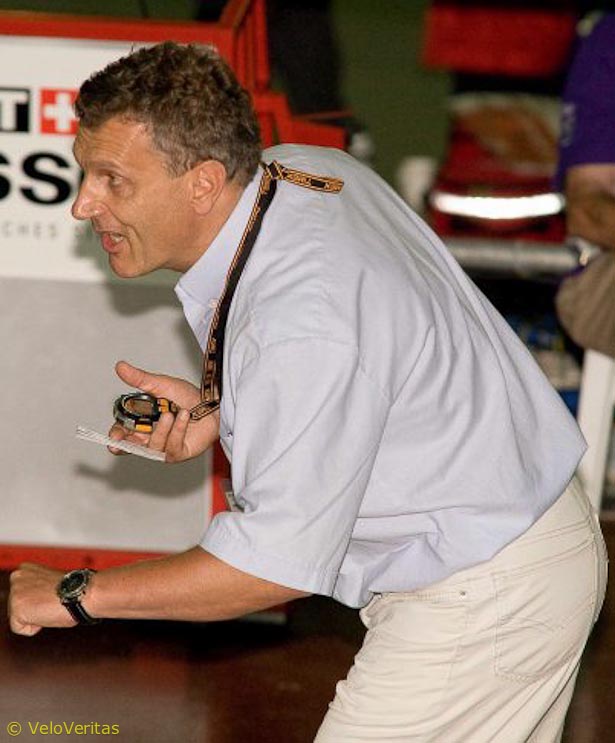
“Not disappointed, no — on the contrary we were very pleased with the result.
“Since the breakup of the Soviet Union the structure of cycling in Russia hasn’t been unified — now we’re trying to fit the pieces of the puzzle back to together and get a structure.
“The ride by the junior team wasn’t expected and was a very pleasing result — it shows we have our foot in the door.”
New Zealand won in Cali.
“They’re serious opposition and should never be discounted — they have a good sports science programme and could spring a surprise in London.”
And the Danes have stepped back up to the mark — silver in the Europeans.
“When I left they carried on with my former assistant but it didn’t work out for them — now they have Casper Jorgensen as coach.
“Casper was in the team when we won the Olympics team pursuit silver in Beijing and the Worlds the following year.
“Basically, he’s started using my methods again — they’re another serious contender.
“We were in the bronze medal position in that competition but I was happy with that — we rode with two of our Worlds riders and two new guys so we weren’t disappointed.
“The timing of the Euros was awkward — the World Cup in Astana was always our main focus.”
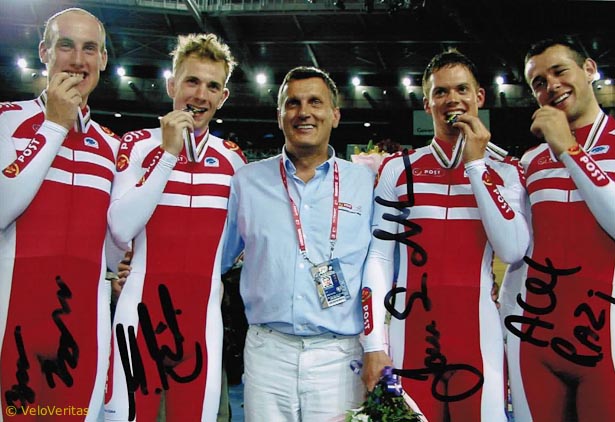
There was a big article in the English ‘Guardian’ newspaper that the GB team are training high intensity ‘boot camp’ style in December.
“High intensity is normal, not all the time, but you have to have it in the mix.
“The new GreenEdge team will have Australian team pursuit riders in it and they’re aware that they’ll need to include high intensity work — all of the nations know what they’re doing.”
Are GB and Australia still the main opposition?
“There are five teams in the hunt; GB, Australia, New Zealand, Denmark and Russia — we view GB and Australia as our main rivals, but after Astana we’re confident that we’re on a level with them.
“That said both New Zealand and Denmark could spring a surprise.”
The London World Cup in February must be important for getting to know the track?
“We want to be there with our best team, the date juggling with the Chinese round of the World Cup has made things awkward but we intend to be good in Beijing and peaking for London.”
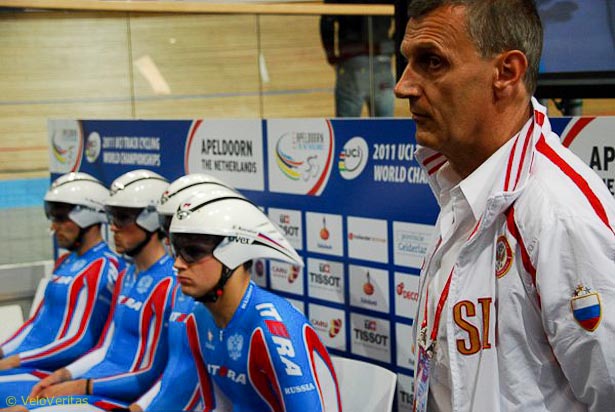
Will you ride your ‘A’ team at the Worlds?
“Yes, the Olympics are the main goal but we want to do a ride in the Worlds.
“A team can achieve two major peaks in the year — the Worlds and Olympics; for the World Cups you target to achieve ‘mini peaks.’
“After the Worlds we’ll move off the track, do road work — the workload doesn’t decrease but everything is then geared to build up to an August peak for the Olympics.”
What’s your take on the regulation that a nation’s omnium rider must come from the pool of five team pursuit riders?
“It’s complete bullshit!
“We’ve discussed this in Russia and decided that we’ll sacrifice the omnium — our omnium rider will be our team pursuit fifth man.
“There will be no special preparation for the omnium — it’s the highlight of a rider’s life to ride the Olympics and he should be allowed to prepare properly for his event, not compromise by trying to prepare for two.
“We’ve decided that we’ll do one event properly rather than two in a half hearted fashion — as far as the endurance events go, all of our energies will go in to the team pursuit.
“It’s back to the Olympic committee trying to reduce the number of competitors — we used to have Hein Verbruggen fighting our corner at Olympic level but he’s no longer involved.”
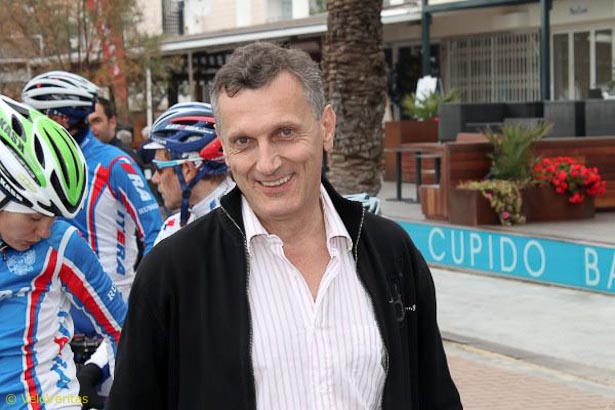
Will the team still be on Cervelos for London?
“We’ll continue with Cervelo but there are other options open to us — our goal is to have the best possible bikes for London.
“We’re loyal to Cervelo and thankful for the help we’ve received from them — but we must consider every option, we’re constantly evaluating and not bonded to any one manufacturer.
“At the moment we believe that Cervelo offer the best option — but there are other manufacturers out there with huge resources and they want to work with Russia.
“GB and Australia are committed to working with their own small specialist builders but when you look at the resources that the likes of BMC and Giant have, you can see that it’s good for us to have the flexibility to go with the best manufacturer and not be tied to any builder.”
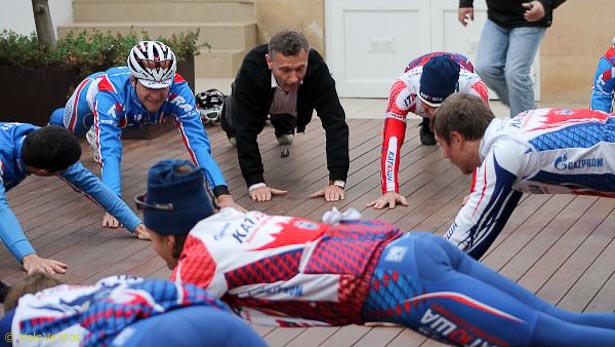
What’s the fastest team pursuit rubber — Continental or Dugast?
“They’re both good tyres but there are other manufacturers offering fast product — Vittoria for example.
“Again, we have the privilege of not being tied to any one manufacturer because of sponsorship arrangements — we’ll select the best tyre that’s available.”
And 3:50 is the mark?
“Yes!
“That’s our target, that’s what we’re training for — and as the speeds get faster and faster the training structure goes more and more towards that of the pure sprinters.”



